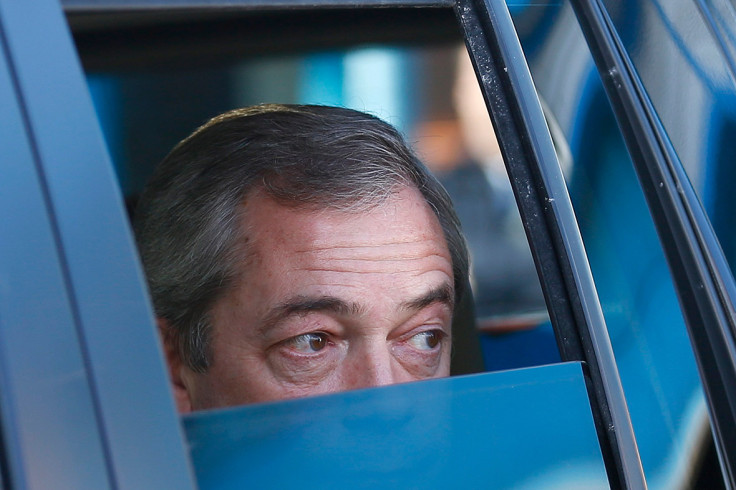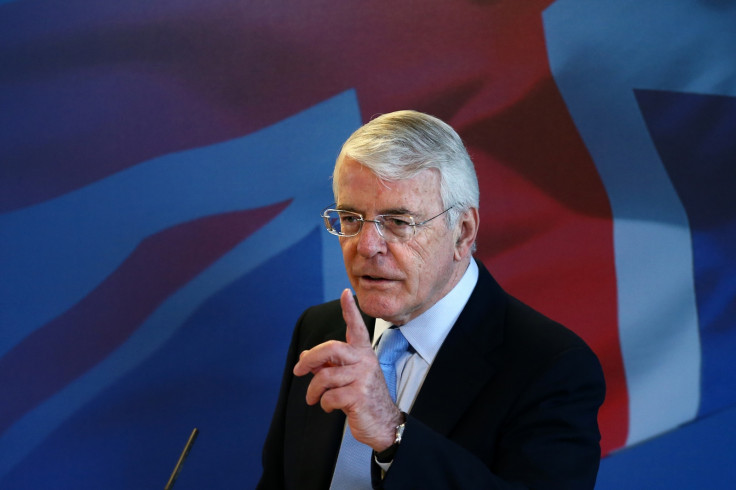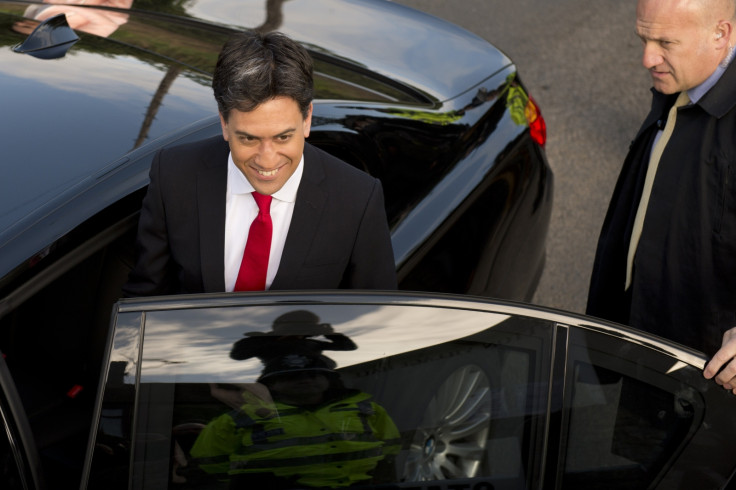Election 2015 has shown Ukip is bad for Britain - and we need electoral reform

Peter Snow is a broadcaster and journalist who worked for ITN and the BBC and fronted the coverage of numerous elections. He became famous for his use of the swingometer, one of the most recognisable and successful political broadcasting tools of all time.
Peter kindly granted IBTimes UK an exclusive interview to discuss his memories of the swingometer, his favourite election, and his views on Nigel Farage.
For IBT's younger readers, can you explain the history of the swingometer?
Well the swingometer as we know it today was actually invented by a BBC broadcaster called Robert McKenzie in 1959. He was a genius, not just in terms of his political knowledge, but also in his ability to make it all understandable and translate these things into clear graphics.
Robert was very good at explaining elections and he invented this wonderful measure which told you the story with one simple pendulum.
I told the BBC to bring it back in 1992; it had been shelved in the 1980s because the rise of the Liberal-Social Democrat alliance had eroded the traditional two-party system and made the concept of a swing between two parties redundant.
But in 1992 it came back into its own and we invented this wonderful great pendulum which moved across the windows, showing the MPs sitting in their position. When you got a 5% swing you'd see 30 Tory MPs turn red, it looked fantastic.

But the 1992 election didn't produce as great a swing as many predicted...
No. We were expecting the swing to Labour to be quite big, and that lots of Tories would "turn red", as it were, but only a few Tory seats turned red in the end.
Who decided to restore the swingometer, you or the producer?
It was mutual. I had been suggesting we should go for something like the swingometer – swing tells you exactly what's happening in a two-party election.
I had actually suggested doing it in 1983 but we eventually decided it might be unwise because of the alliance. So 1992 was the perfect opportunity.
How much input did you have into the design of the graphics?
Two or three years before an election I would be working with the graphics producers, looking forward to the election. It was a huge amount of work. I had to be there and I'm sure Jeremy Vine is the same, in the graphics studio, looking at the concept stage of the graphics.
You covered your last election in 2005. Will you miss it this year?
I always miss it. It was a wonderful experience, one of the best jobs in television, enormously exciting. I was glad to give it up when I did because it requires quite a lot of exercise running round that huge arena.
In 2001, we decided to base our graphic on the idea of William Hague climbing this huge staircase to achieve a majority (he was a distant second to Blair at the time). I had to run up and down the staircase all night. Eventually I decided it was time to give up.
Of all the elections you covered at ITN and the BBC, which was your favourite?
I think 1997 was a favourite. There's nothing like a big change to bring the graphics and the whole story together. When you see Portillo and their ilk going down, it's a great moment of drama. When your swingometer goes way up to 10% for Labour, or to the Tories as it did in 1979, those are the ones that are exciting.

Some people might argue Jeremy Paxman and his fellow presenters have been too abrasive during this year's campaign; when Paxman called Ed Miliband a 'North London geek' it irked a few people. What's your take?
They haven't been too abrasive at all. It's been a pretty bland campaign; the only thing that makes it unbland is when audiences can shout questions at politicians that they think are fair, as they did on Question Time, and when interviewers challenge the politician. Paxman, Dimbleby etc are terribly important.
Some time ago I remember politicians would turn up at these meetings and they'd all heckle away, the odd tomato might have been thrown. Today's politicians have it easy.
Of today's current crop, who do you warm too? Who could rival the political stars of the 1960s and 1970s, the likes of Wilson and Heseltine, for charisma?
Well Boris Johnson is a lively character who gives as good as he gets but I'd like to see the crowd heckling him and see how he'd respond. It's all rather stage-managed these days, it's a post-Alastair Campbell thing.
Who do you want to win this year?
I've never confided to anyone how I vote or what I think. The campaign has been rather dismal in many ways, no one party has stood out. All three of them have failed to light people up, to captivate, to inspire.
And what's your view on the SNP, the real talking point of this year's campaign?
I tend to look at facts not opinion. The arithmetic is that if Miliband gets 270 seats, it's perfectly true that the SNP will have the number of seats required to ensure Miliband is able to govern or not. The SNP is part of the United Kingdom, and they will be part of a new parliament. I don't take the strong Conservative view on the SNP.
And what about Ukip?
Ok, I'll be open about this, I don't agree with Ukip.
One thing I very much believe in is the decision to enter the EEC (the antecedent of the EU) back in the 1970s. It would be a terrible mistake to leave. If the Tories get in and there is a referendum, hopefully they will bring something back from Brussels; that will be important.
Ok, so who do you think will win?
I'm no good at prophesying things but if polls stay the way they're staying, it'll be a dead heat with Miliband slightly behind Cameron, and then we'll see who can form the coalition.
You may then get Miliband becoming PM because the SNP don't vote against him. That may happen. But that's very difficult to forecast right now.
And what about the prospect of a second election, a repeat of 1974?
I hope we don't have a repeat of 1974 because, in reality, it made very little difference. It just gave Wilson a tiny majority.
So is electoral reform the answer?
Yes. This election demonstrates that we need to reform the electoral system, in favour of proportional representation. Even parties as absurd as Ukip deserve 10% of the MPs if they get 10% of the vote. In a PR system you would have more Lib Dems than you will get this year, and fewer Tories and Labour. You would also get a much more representative parliament.
And what about an even-bigger revolution: the creation of a Tory-Labour coalition?
Well if no party can form a government, the idea shouldn't be dismissed out of hand. When you consider what the differences are, they're not that great on the issues that count. Very little difference on the NHS, very little difference on Trident, some difference on social security but overall, there's far more pulling them together than pushing them apart.
For all that people on both sides may resent the idea, it may end up being the only answer. A Tory-Labour coalition would represent 70% of the British people.
Who back in 2010 voted Lib Dems and actually wanted to support the Conservatives? Not many, but in the end the coalition government that lasted five years was quite successful and represented a higher proportion of the British people than almost any government in living memory. That has to be the way forward.
Since fronting his last election in 2005, Peter has presented several history documentaries and written a number of books, including To War with Wellington, which is available on Amazon.
© Copyright IBTimes 2025. All rights reserved.





















